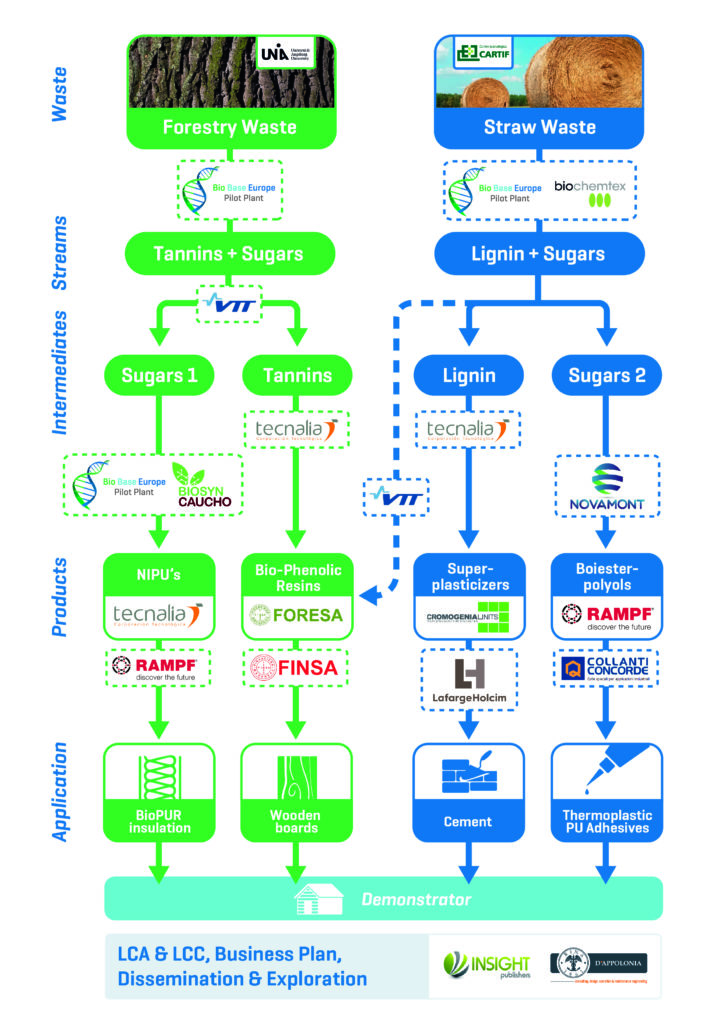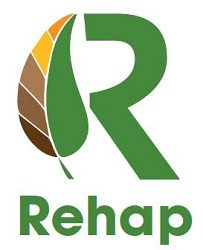Systematic approach to Reduce Energy demand and CO2 emissions of processes that transform agroforestry waste into High Added-value Products
As such, Rehap will help to reduce the use of fossil resources and energy in the process industry. This will be done by developing insulation foams, adhesives, bio-resins and cement that are produced using renewable materials and that do not require the use of petroleum-based materials.

REHAP scheme
ACTIVITIES of Bio Base Europe Pilot Plant
- Recovery of tannins and sugars from bark
- Recovery of lignin and sugars from straw hydrolysate
- Production of chemical building blocks from the recovered sugars via fermentation
- Scale-up of the 2,3 Butanediol fermentation process to 1.500L scale
- Scale-up of the aforementioned recovery processes to 10.000L scale
Click here to find more information on the REHAP project (official REHAP website)
PARTNERS
- TECNALIA, ES
- VTT, FI
- UNIA (Augsburg University), DE
- D’Appolonia, IT
- COLLANTI Concorde, IT
- FORESA, ES
- RAMPF, DE
- Insight Publishers Ltd, UK
- LAFARGE, FR
- Bio Base Europe Pilot Plant, BE
- Novamont, IT
- CROMOGENIA-UNITS, S.A. (CUSA), ES
- Biochemtex S.p.A. (CTXI), IT
- BIOSYNCAUCHO, ES
- CARTIF, ES
SUPPORTED by:
This project has received funding from the European Union’s Horizon 2020 research innovation programme under grant agreement No. 720670.



 webdesign
webdesign